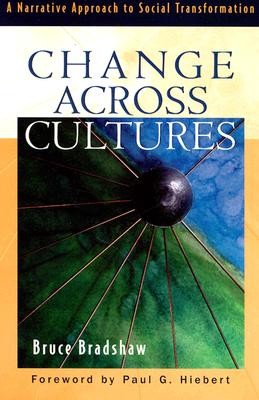
- We will send in 10–14 business days.
- Author: Bruce Bradshaw
- Publisher: Baker Academic & Brazos Press
- ISBN-10: 0801022894
- ISBN-13: 9780801022890
- Format: 15.5 x 23 x 2 cm, minkšti viršeliai
- Language: English
- SAVE -10% with code: EXTRA
Reviews
Description
C. S. Lewis compared the task of ethical inquiry to sailing a fleet of ships; the primary task is avoiding collisions. When introducing cultural change, such collisions are inevitable. Bruce Bradshaw provides expert instruction for navigating these cultural clashes.
Bradshaw contends that lasting change comes only through altering the stories by which people live. The Bible is the metanarrative whose altering theme of redemption forms a transcultural ethical basis. Aspects of God's redemption story can change how local cultures think and behave toward the environment, religions, government, gender identities, economics, science, and technology. However, effective change takes place only in a context of reconciliation, Christian community, and mutual learning. A must read for anyone engaged in or preparing for cross-cultural ministry, relief, or development work. The book is also relevant to students of ethics, philosophy, and theology. Numerous real-life examples illustrate the inevitable tensions that occur when cultures and narratives collide.EXTRA 10 % discount with code: EXTRA
The promotion ends in 23d.05:49:19
The discount code is valid when purchasing from 10 €. Discounts do not stack.
- Author: Bruce Bradshaw
- Publisher: Baker Academic & Brazos Press
- ISBN-10: 0801022894
- ISBN-13: 9780801022890
- Format: 15.5 x 23 x 2 cm, minkšti viršeliai
- Language: English English
C. S. Lewis compared the task of ethical inquiry to sailing a fleet of ships; the primary task is avoiding collisions. When introducing cultural change, such collisions are inevitable. Bruce Bradshaw provides expert instruction for navigating these cultural clashes.
Bradshaw contends that lasting change comes only through altering the stories by which people live. The Bible is the metanarrative whose altering theme of redemption forms a transcultural ethical basis. Aspects of God's redemption story can change how local cultures think and behave toward the environment, religions, government, gender identities, economics, science, and technology. However, effective change takes place only in a context of reconciliation, Christian community, and mutual learning. A must read for anyone engaged in or preparing for cross-cultural ministry, relief, or development work. The book is also relevant to students of ethics, philosophy, and theology. Numerous real-life examples illustrate the inevitable tensions that occur when cultures and narratives collide.

Reviews